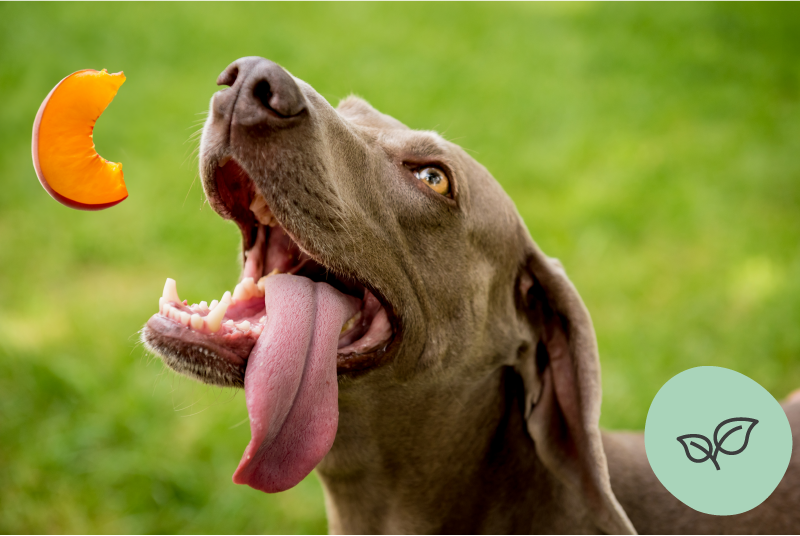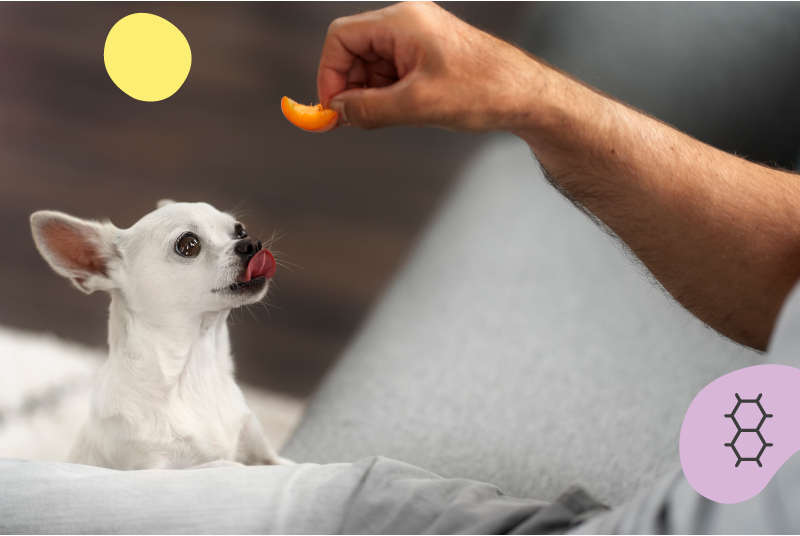Can you give your dog an apricot?

Every dog owner wants the best for their faithful companion, whether in terms of comfort, care or diet. And speaking of food, a common question among canine lovers is what fruit and vegetables our four-legged friends can safely enjoy. Today, our topic is a summer delicacy enjoyed by many humans: apricots. But can your dog also enjoy this sweet, juicy fruit? If "apricot dog" is a query you've recently entered into your search engine, you've come to the right place.
Here's what we're going to talk about:
- Part 1: Apricots: A tasty snack but good for dogs?
- Part 2: Dangers of Apricots for Dogs: What to watch out for?
Together, we'll make sure your pet doesn't miss out on everything, but also enjoys a long, happy and healthy life. Let's go!
1. Apricots: A tasty snack but good for dogs?
Apricots and Dogs: A Possible Duo?
As dog owners, we've all faced that moment when we wonder whether it's safe to share our delicious snacks with our faithful companions. You're sitting there, enjoying the sugary sweetness of a fresh apricot, and you can't help but wonder if your four-legged friend can enjoy it too. That's when the search for "apricot chien" or "apricots chien" begins. Rest assured, we're here to clear this up for you.
The Potential Benefits of Apricots for Dogs
Apricots are a treat for humans, but are they also good for our dogs? Can you really add "apricots for dogs" to your weekly shopping list?
The answer is yes, as long as they're served correctly. Apricots are rich in vitamins A and C, which are excellent for your dog's skin and coat and can boost his immune system. They also contain potassium, an important mineral for the proper functioning of your pet's muscles and nerves.
So, in addition to your dog's usual food, an apricot from time to time can be a healthy treat. But wait a minute! Before you rush to give your dog that apricot, there are a few precautions you should take. Although the flesh of the apricot can be beneficial, some parts of the fruit can be dangerous for your four-legged friend.
In the following section, we'll take a closer look at these potential dangers and the precautions you should take when feeding your dog apricots. Stay tuned!

2. Dangers of Apricots for Dogs: What to watch out for?
The Potential Risks
Giving your dog an apricot may seem harmless and even appealing at first sight. However, it's important to note that eating apricots for our four-legged friends is not without risk. The main danger lies not only in the core of the apricot, but also in the leaves and stem of the tree, all of which can be potentially fatal to dogs.
Apricot pits, leaves and stems contain a substance called amygdalin. When ingested, this substance can break down into cyanide, a highly toxic substance. That's right, cyanide. If your dog ingests an apricot kernel or chews on the leaves or stem of an apricot tree, he could develop symptoms of cyanide toxicity. These symptoms can include agitation, dilated pupils, breathing difficulties and even collapse.
That's why it's vital to be careful when feeding apricots to your dog, ensuring that you have carefully removed all the pits and avoided any exposure to the leaves and stems of the apricot tree.
Top 10 foods not to give your dog
Precautionary measures
So how can you ensure that your dog enjoys the sweetness and nutritional benefits of apricots without any risk? The answer is simple: take the necessary precautions.
Before giving an apricot to your dog, always remove the stone. It's also advisable to cut the apricot into small pieces to aid digestion and avoid the risk of choking.But that's not all. As with us, eating too many apricots can upset your dog's stomach. So it's best to give apricots in small quantities, treating them as a treat and not as a main food. Signs of overeating include stomach upset, diarrhoea and vomiting.
In short, 'apricots for dogs' can be an excellent healthy snack option, provided you exercise caution and moderation. As always, if you have any concerns or questions, don't hesitate to consult your vet.
In conclusion, apricots can be a healthy treat for your dog, provided they are served correctly and in moderate quantities. Their sweet flesh is a source of vitamins and minerals that can contribute to the health of your four-legged friend. However, it's vital to always remove the poisonous pit before giving your dog an apricot, and to keep a close eye on how your dog reacts after eating it.
As with everything to do with your dog's health and well-being, if you have any questions or concerns, it's always best to consult a vet. Remember that every dog is unique and may react differently to different foods.
Ultimately, when you type "apricot dog" into your search engine, you want to make sure you're giving your dog the best. And now you know how to do it safely and beneficially.
Remember, our goal as pet owners is to provide our four-legged friends with a life full of health, happiness and love. By taking the time to learn what's good and what's potentially dangerous for them, we get a little closer to that goal every day.

